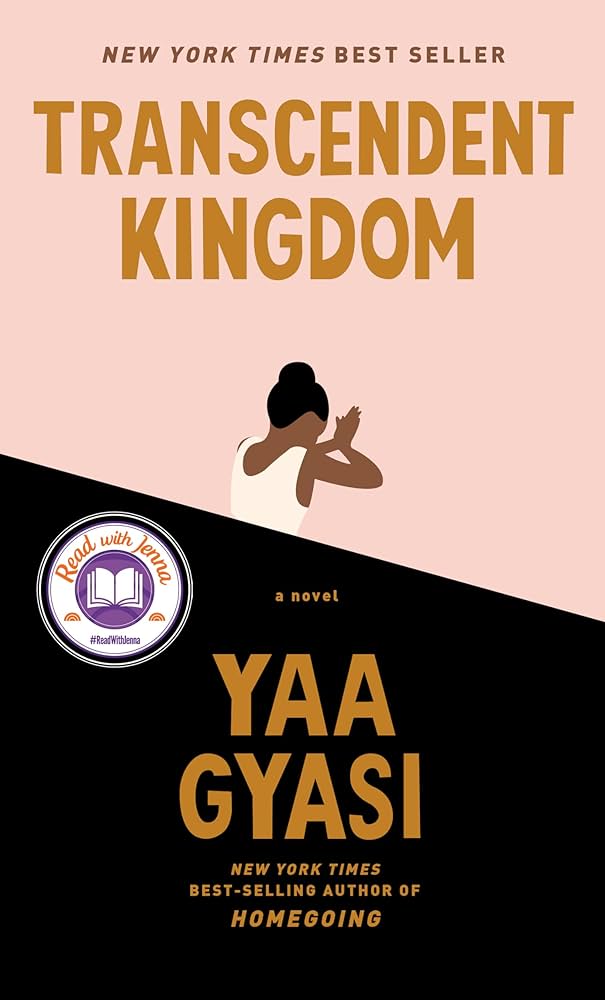 Transcendent Kingdom by Yaa Gyasi is a profound exploration of identity, faith, and the complexities of family dynamics. Published in 2020, this novel is a poignant journey through the life of Gifty, a Ghanaian-American neuroscientist, as she grapples with the intersections of science and religion, the impact of addiction on her family, and the quest for understanding in the face of loss. In this comprehensive review, we will delve into the intricacies of the plot, explore the nuanced characters, dissect the thought-provoking ending, and address some frequently asked questions to provide readers with a thorough understanding of this emotionally charged novel.
Transcendent Kingdom by Yaa Gyasi is a profound exploration of identity, faith, and the complexities of family dynamics. Published in 2020, this novel is a poignant journey through the life of Gifty, a Ghanaian-American neuroscientist, as she grapples with the intersections of science and religion, the impact of addiction on her family, and the quest for understanding in the face of loss. In this comprehensive review, we will delve into the intricacies of the plot, explore the nuanced characters, dissect the thought-provoking ending, and address some frequently asked questions to provide readers with a thorough understanding of this emotionally charged novel.
A Summary of the Plot
“Transcendent Kingdom” revolves around Gifty, a PhD candidate in neuroscience at Stanford University. The narrative alternates between Gifty’s past and present, offering glimpses into her childhood in a Ghanaian immigrant family in Alabama and her adult life as a researcher. The novel is a meditation on the intersections of faith and science, the immigrant experience, and the impact of addiction on familial bonds.
Gifty’s brother, Nana, succumbs to opioid addiction, which deeply affects her family. Her mother, overcome by grief, turns to her Christian faith for solace. Gifty, torn between her mother’s religious convictions and her own pursuit of scientific knowledge, grapples with questions of salvation, mental health, and the complexities of identity.
The narrative weaves through Gifty’s relationships—with her family, her mentor at Stanford, and a potential romantic interest—revealing the intricate layers of her internal struggles. As Gifty conducts experiments with mice to understand the neural mechanisms of reward and addiction, she confronts the parallels between their behavior and the human experience, leading her to question the nature of suffering and the pursuit of transcendence.
The novel is a rich tapestry of emotions, blending the personal and the scientific, as Gifty seeks to reconcile the disparate elements of her life and make sense of the profound losses she has endured.
Characters
Gifty: The protagonist, Gifty, is a complex and introspective character. Her journey from a young girl navigating the challenges of being an immigrant in the American South to a brilliant scientist grappling with grief and faith is portrayed with depth and authenticity. Gifty’s internal conflicts and the intricacies of her relationships make her a compelling and relatable character.
Nana: Gifty’s brother, Nana, is a central figure in the narrative. His battle with addiction and eventual tragic fate cast a long shadow over Gifty’s life, shaping her perspectives on faith, science, and the nature of human suffering.
Gifty’s Mother: A devout Christian, Gifty’s mother represents the intersection of faith and personal struggle. Her grief over Nana’s death leads her to seek solace in her religious beliefs, providing a counterpoint to Gifty’s scientific inquiry.
Professor Nell: Gifty’s mentor at Stanford, Professor Nell plays a crucial role in shaping Gifty’s academic and personal journey. The mentor-student dynamic adds depth to the narrative, highlighting themes of mentorship, ambition, and the pursuit of knowledge.
Transcendent Kingdom Ending Explained (Spoilers)
The novel concludes with Gifty finding a measure of closure and acceptance. In the final chapters, she reflects on the interconnectedness of life and death, acknowledging the pain of loss while embracing the enduring love she holds for her family. The ending doesn’t offer neat resolutions but provides a sense of Gifty coming to terms with the complexities of her past and present.
The recurring theme of transcendence takes on a new meaning as Gifty reflects on her research, her family, and her own journey. The ending invites readers to consider the possibility of finding moments of transcendence in the ordinary, even in the face of profound sorrow.
Frequently Asked Questions
Is It Based on a True Story? No, “Transcendent Kingdom” is a work of fiction. While the novel addresses universal themes such as grief, faith, and identity, the specific events and characters are products of Yaa Gyasi’s imagination.
What Is the Main Idea of the Book? The main idea of “Transcendent Kingdom” revolves around the exploration of identity, faith, and the complexities of family relationships. The novel navigates the intersections of science and religion, portraying the protagonist’s journey as she grapples with the impact of addiction on her family and seeks understanding in the face of loss.
Is This Book Worth Reading? Absolutely. “Transcendent Kingdom” is a beautifully written and emotionally resonant novel that delves into profound and thought-provoking themes. Gyasi’s exploration of the human experience, coupled with the richness of her characters, makes it a compelling and worthwhile read for those seeking a deeply affecting narrative.
What Is the Symbolism in This Book? The novel employs symbolism to convey its themes, with the mice in Gifty’s experiments serving as a metaphor for the search for understanding in the face of suffering. The recurring motif of transcendence symbolizes the protagonist’s quest for meaning and connection, both in her scientific pursuits and personal relationships.
Conclusion
Transcendent Kingdom is a masterfully crafted novel that invites readers to contemplate the intricate threads of identity, faith, and family. Yaa Gyasi’s prose is both evocative and poignant, creating a narrative that lingers in the mind long after the final page. Through Gifty’s journey, the novel offers a compelling exploration of the human condition, making it a must-read for those who appreciate literature that delves into the complexities of life and the search for transcendence.

